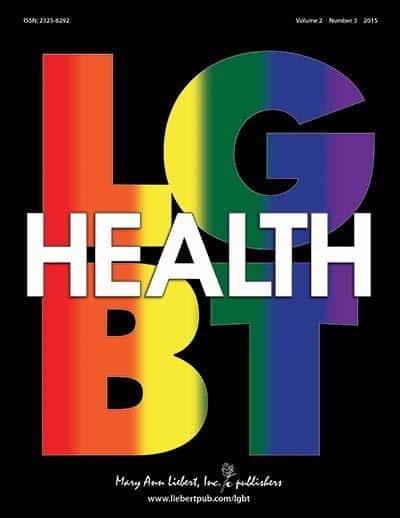The U.S. Supreme Court’s recent landmark ruling on marriage equality has important, positive health implications for LGBT persons, including the impact of reducing stigmatization and discrimination on mental and physical health and improving access to health coverage. The new rights and benefits available to same-sex couples as a result of the Obergefell v. Hodges decision extend to couples in which one or both partners are transgender, as described in an article published in LGBT Health, a peer-reviewed journal from Mary Ann Liebert, Inc., publishers. The article is available free on the LGBT Health website until September 19, 2015.
In “Health Implications of the Supreme Court’s Obergefell vs. Hodges Marriage Equality Decision,” Angela K. Perone, JD, MSW, University of Michigan, Ann Arbor, examines the impact of this groundbreaking ruling on ameliorating factors such as minority stress, stigmatization, and discrimination that contribute to health disparities. She also details the impact on barriers to health care for LGBT persons who seek health benefits through marriage in sections that examine federal and state health-related benefits, employer health insurance, and taxes from health coverage. Also included is a discussion of important issues affecting LGBT health that remain even after the marriage equality decision.
In the Editorial, “LGBT Health Equity: Steps Toward Progress and Challenges Ahead,” Editor-in-Chief William Byne, MD, PhD, James J. Peters VA Medical Center (Bronx, NY) and Icahn School of Medicine at Mount Sinai (New York, NY) states, “health equity seems more attainable than ever; however, we must not be lulled into complacency. In many regions of the world, where LGBT persons lack basic human rights and civil protections, LGBT health equity can hardly be imagined. Even in the U.S., there is still no federal law protecting LGBT individuals against discrimination in employment, housing, and public accommodation, and serious health disparities persist. Much remains to be done.”


